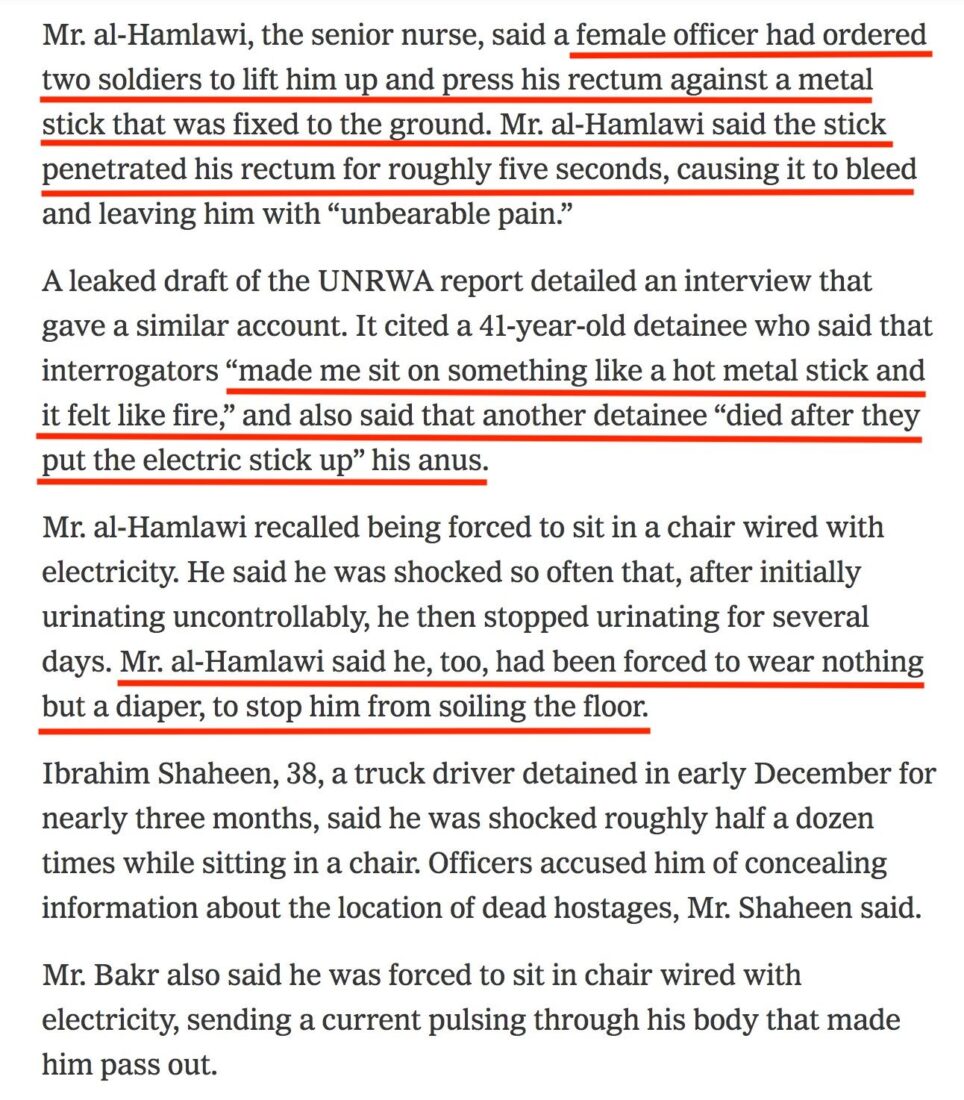Abuse, rape, death: Report reveals life for Palestinians in Israeli custody
 Israeli soldiers stand by a truck packed with blindfolded Palestinians in Gaza, December 8, 2023 (AP Photo)
Israeli soldiers stand by a truck packed with blindfolded Palestinians in Gaza, December 8, 2023 (AP Photo)
Reports of severe human rights violations at Sde Teiman Army Base in southern Israel have emerged, raising serious concerns. Allegations include the death of a Gazan individual after being penetrated by an electric stick, the ordered rape of a senior Gazan nurse by a female Israeli officer, and a U.N. worker being forced to sit on a “hot metal stick.” These reports mark the fourth instance of rape allegations on Israeli Defense Forces (IDF) this year.
The New York Times reports that Palestinians from the Gaza Strip are being detained at Sde Teiman, an army base in southern Israel. Since the onset of the war on Oct. 7, most captured Palestinians have been brought to this site for initial interrogation, according to the Israeli military.
The military, which had not previously allowed media access, granted The New York Times a brief glimpse of part of the detention facility. This included interviews with commanders and other officials, who spoke on condition of anonymity.
Sde Teiman is now central to accusations of mistreatment of detainees, including individuals later determined to have no ties to Hamas or other armed groups, according to The New York Times.


Reports of abuse
Former detainees described beatings and other abuses within the facility during interviews. By late May, approximately 4,000 detainees had spent up to three months at Sde Teiman, including dozens captured during the Hamas-led attacks on Israel in October, according to site commanders.
Eight former detainees confirmed by the military to have been held at Sde Teiman spoke on the record about their experiences, according to The New York Times. They reported being punched, kicked, and beaten while in custody. Seven said they were forced to wear only a diaper during interrogations, and three claimed they were subjected to electric shocks.
Under Israeli legislation, detainees at Sde Teiman are classified as “unlawful combatants,” allowing them to be held for up to 75 days without judicial approval and 90 days without access to a lawyer.



